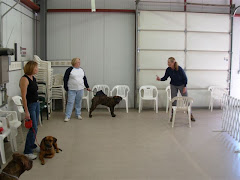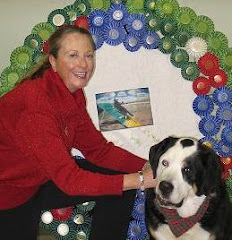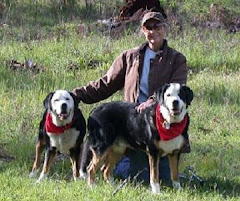"He'll run out the door as soon as I get home and then he'll go over to the woodshed and stand there and bark at me. Then he won't come in when I call him. He just barks and wags his tail and plays his keep-away game. He gets mad at me when I leave him, and that's how he gets back at me."
"Donna," I offered, "he's not doing it to get even with you. Dogs don't think that way."
"Mine does," she insisted. "He's always done that. He does not like it when I leave him!"
- He's always done that.
- He does not like it when I leave him!
 | |
When Donna's dog does this, she probably reacts in a way that gratifies the dog for his behavior. Any attention she shows him, whether positive or negative, suits the dog, who's just glad to have her back home. Since habits develop quickly, the dog's keep-away behavior is now simply routine. It's an outburst of energy and represents no malicious thoughts of revenge on the dog's part.
Reshaping the behavior would be pretty easy. Donna could meet him at the door with a treat in her hand and ask him to sit until she got inside, closed the door behind her, and was able to offer him a follow-up treat. She could also teach the dog to "curb" at the door when she opens it. The easiest and most universally successful approach for most people in similar situations is to simply ignore the dog for the first few minutes of their arrival home.
When dog owners misinterpret their dogs' behaviors, communication and understanding break down. Frustration ensues, and the situation often worsens. "Anthropomorphism" is that mouthful that means "attributing human characteristics and behaviors to animals." While the dogs who share our lives seem pretty human to all of us, we must remember that their brains process information as animals, without a sense of "yesterdays," "tomorrows," or "what ifs." Without a sense of "tomorrow," there's no reason to "plan ahead" with schemes of revengeful acts. There is only the here and now.
Actually, that's pretty darn intelligent thinking, isn't it!



















No comments:
Post a Comment